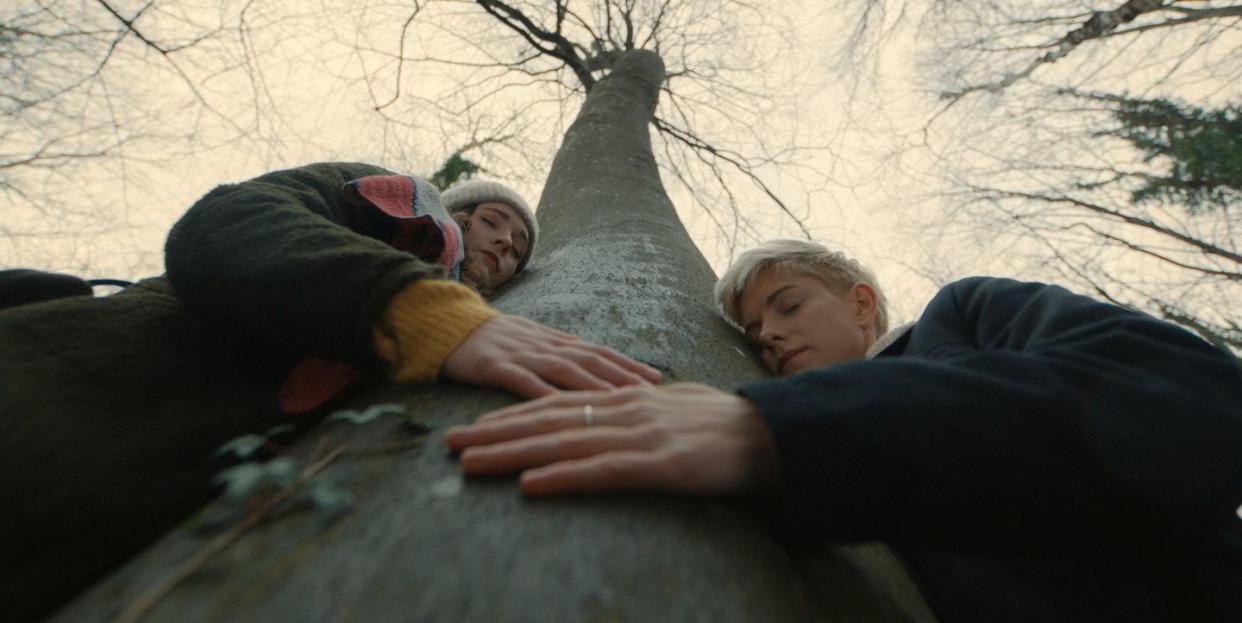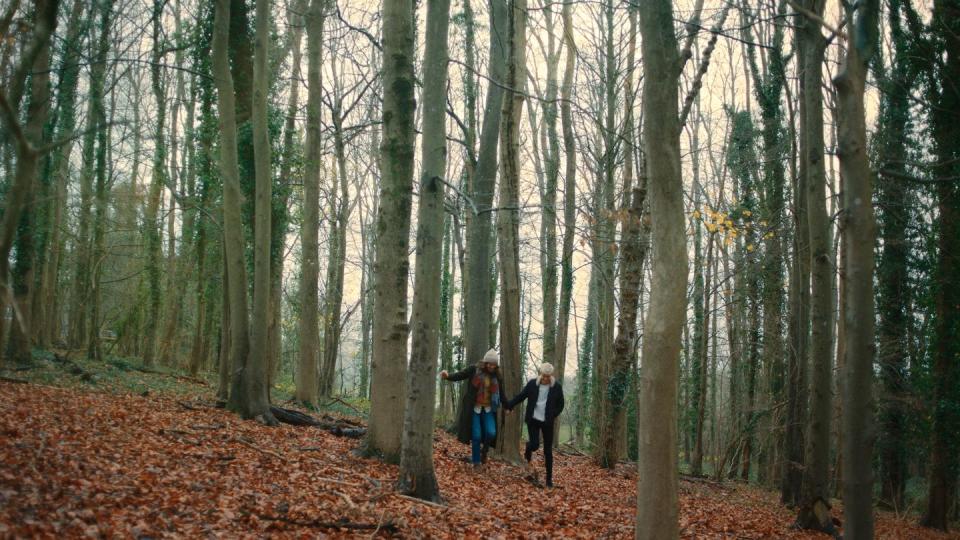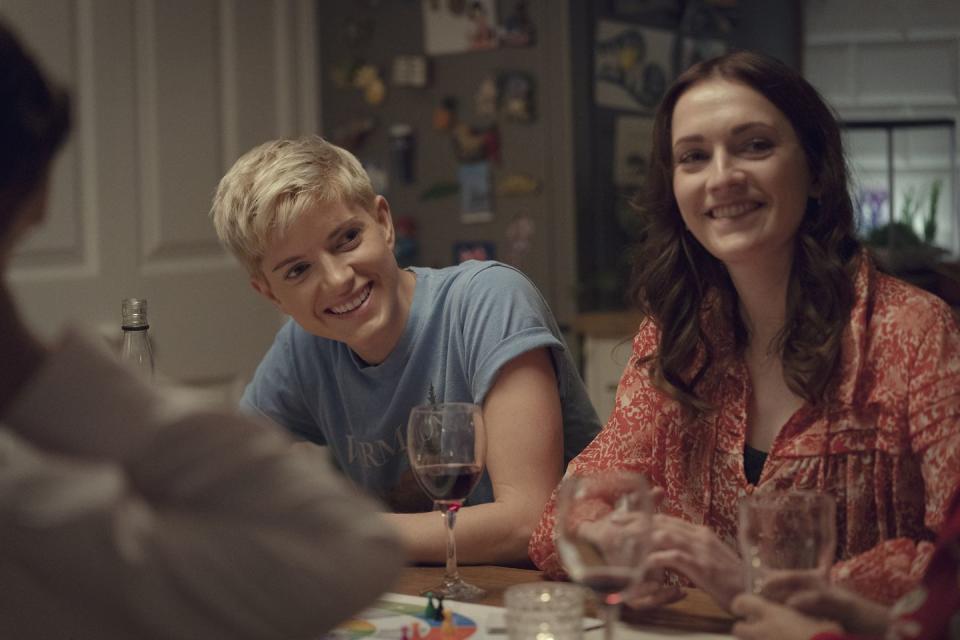Mae Martin and Charlotte Ritchie Explain That Vomit-Flecked ‘Feel Good’ Ending

Warning: this explanation of the ending of the second series of Feel Good contains – whoda thunk it – a lot of spoilers for the ending of the second series of Feel Good.
If you've hammered through the second series of Mae Martin and Joe Hampson's Feel Good this weekend, you'll probably have been sitting with that ending for a little while.
After leaving Phil with Mae's mum and dad, Mae and George head north from Toronto for a break in the middle of nowhere. First, though Mae stops off at the comedy club to finally confront her old friend and ex, Scott, about the relationship which became the source of the PTSD Mae suffers through the series.
It's a prime example of what Martin told Esquire about there being "no good guys and bad guys," in spite of Scott's heinous actions. After Scott's admitted that he felt "entitled" to 15-year-old Mae because he was paying for their existence, Mae tells him that they love him, and that they never want to see him again.
That pink neon behind Mae as they're talking to Scott is interesting too. It seems to hint that while they're with Scott, going over the past, Mae is pulled back into the identity they had then. Scott certainly thought of them as a cis woman rather than a non-binary person, so having accepted that Scott loves them and declared that they never want to see him ever again, Mae walking out of that pink-lit room feels like a decision to fully embrace their non-binary identity.
Having got back into the car, Mae pukes onto the road.
"It’s the cathartic purging thing," Martin explains. "I think Mae’s been carrying around a lot, so to see them physically expelling bile is satisfying, in a way."
Then, as Mae and George wind through Canadian countryside, there's a very satisfying needle-drop on 'Motion Sickness' by Phoebe Bridgers.

"I love that song, and I think it connects with the main Scott storyline pretty well, lyrically," says Martin. "Just give it a listen. It’s all there!"
It really is: "I hate you for what you did, and I miss you like a little kid... while you're bleeding on your back in the glass I'll be glad that I made it out and sorry that it all went down like it did." That's the whole ball game, right there.
By a lake, Mae and George check in with each other.
"I'm bored of myself. How are you feeling?"
"Yeah," says George. "Good."
At last! Someone in Feel Good actually feels good. It's no coincidence that they find some equilibrium out in the countryside either. As George observes earlier in the episode, "we've never really tried nature," and through the series Mae is thoroughly unconvinced about the idea of heading out into the wilds. It's a motif that ties together a lot of the themes from both series, and it's drawn from the work of addiction specialist Gabor Maté.
"He writes a lot about the healing power of nature and looking outside yourself in that way and feeling like a connected part of the world," says Martin. "And so I think Mae in particular – and George I guess – they’ve been in such a navel gazing bubble that I think it’s really nice to see them look out in that way at the end and see the world as it rather than seeing the world glazed over with all of their biases and their neuroses. They’ve been looking through a dirty lens for a lot of the series, and it feels like at the end Mae finally sees a leaf as it is."

Finally, there's that chat between Mae and George at the lakeside, about leaves and chlorophyll and photosynthesis. It's nice isn't it? And it's about the new start that they're making together, and the growth and renewal they've gone through and which is still to come.
"It’s also refreshing that that takes them out of themselves and for the first time in ages, they have a proper conversation about something that isn’t to do with them or who they are," says Ritchie. "It’s external, and it’s interested in the world, and it’s gazing outwards, which is nice, and quite a freeing thing I think."
Like this article? Sign up to our newsletter to get more articles like this delivered straight to your inbox
Need some positivity right now? Subscribe to Esquire now for a hit of style, fitness, culture and advice from the experts
You Might Also Like


